Nov 2019 1st Edition
Nov 2019 1st Edition vuyelwan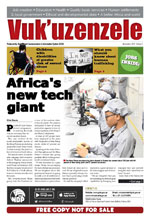
Translations
Abused women and children get safe haven
Abused women and children get safe haven angenithaGender-based violence
President Cyril ramaphosa’s Emergency Action Plan on Gender-Based Violence and Femicide includes the provision of adequate care and support for survivors. The newly opened White Door Centre in Kuruman is a direct response.
The White Door Centre of Hope in Seoding Village in Kuruman, Northern Cape provides a 24-hour response and safe space for victims and survivors of gender based violence (GBV).
Opened recently, the centre will take in and offer psychosocial support to up to eight victims of GBV crimes such as domestic abuse, sexual abuse and human trafficking. The centre has two social workers and a house mother. It is one of seven in the province, said Hendrina Samson of the Northern Cape Department of Social Development.
She said the White Door Centre of Hope is an immediate contact centre that gives victims of GBV access to counselling, a temporary safe haven from an abuser and, if necessary, facilitates a safe place for victims of GBV. 
“This facility is based within the community, women will have the right to contact us at any given time as it’s a place for any women and children.”
Victims of GBV will be put in contact with the police, doctors and given all the necessary help. "When a woman has been abused, it often happens that they go to a family member where the partner can find them. This place then allows for the police, doctor, psychologist, priest to contact the facility and place these women there.”
Members of the public and women that have been abused can also walk into the centre for help.
The White Door Centres of Hope are also linked to the GBV Command Centre (GBVCC) which is a 24-hour tollfree hotline that gives GBV victims psychosocial care and support.
Did you know
Community members can also report abuse to the GBV Command Centre by phoning 0800 428 428, sending an SMS with the words Help to 31531 or a Call Me Back with the USSD code: *120*7867#.
The centre caters for people with speech and hearing impairment through Skype. To use this function, one must add ‘HelpMe GBV’ on their Skype account. The GBVCC website address is: www.gbv.org.za
Africa's new tech giant
Africa's new tech giant vuyelwanPresident Cyril Ramaphosa’s programme of reviving the South African economy has received another boost.
This was evident at the much-anticipated launch of the Mara Phone manufacturing plant at the Dube Trade Port in Durban recently. The plant is a first of its kind in South Africa.
The launch comes 12 months after company chief executive Ashish Thakkar announced at the inaugural Africa Investment Forum in November 2018 that the company would invest R1.5 billion in a South African business venture over the next five years.
The Rwanda-based Mara group took the President on a tour of the modern state-of-the-art plant. The plant is anticipated to have an annual production capacity of over 1.2 million handsets of the Mara X and Mara Z cellphones. 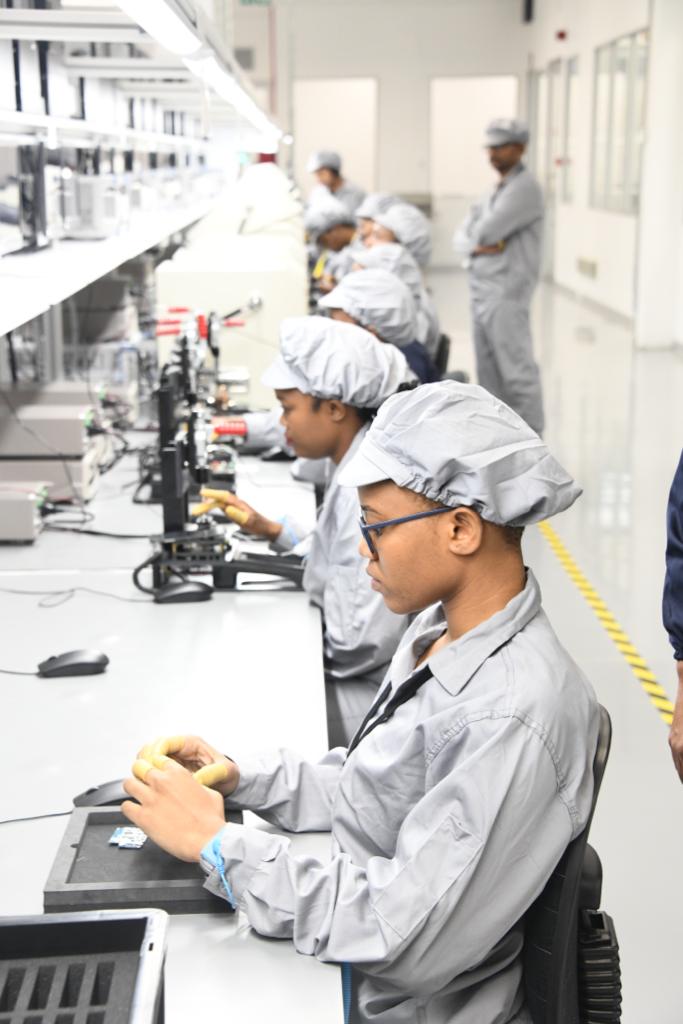
A total of 200 people have been employed at the plant with 94 percent of them being youth, while 67 percent are women.
Speaking at the event, President Ramaphosa said the Mara Phone’s venture was giving practical effects to the government’s investment drive.
“It was described as a pipe dream. Today we are reaping the fruits of what was promised. We are delighted about this great launch because it is going to instill a lot of confidence in other manufacturers that South Africa indeed is a place where they should all come and invest. We are delighted because Mara is a proudly African venture that is producing a South African product.”
He said the company’s effort represents a great advance in the technological and electronical sector.
“We are delighted that you are increasing our technological capabilities by bringing your company here and emboldening the skills talent that we have,” he said.
In his State of the Nation Address, President Ramaphosa said special economic zones, such as the Dube Trade Port, are important instruments and mediums of attracting foreign investment as well as domestic investment. The SEZs, he said, are also important in building targeted industrial capabilities and establishing new industrial hubs.
“Studies reveal that sea port cities grow faster than inland port cities due to their strategic locations. Durban is especially well positioned but we actually add to that positioning by having that special SEZ. This in itself is a very good foundation to catapult our country to higher levels of growth,” he said.
He praised Thakkar for being a patriotic African.
“He is clear, he’s articulate, he’s a visionary and knows exactly what he wants to achieve,” he said.
SA ready and open for investment
Thakkar thanked President Ramaphosa and the South African government for pushing the company deliver on its undertaking.
“We have come to South Africa much, much sooner than we have initially planned. We did this because of your vision of making South Africa shine again as a true investment destination and creating real jobs for our youth. It is truly working and we are proof of that,” he said.
As an African investor with investment in 25 African countries, he said venturing into South Africa has been a phenomenal experience.
“It really does show that South Africa is ready and open for investment and for business. More boldness and vision encouraged us to do this and will hopefully contribute to your fourth industrial revolution ambition as well.
Confidence in SA
KwaZulu-Natal Premier Sihle Zikalala thanked Mara Phone for showing confidence in KwaZulu-Natal and South Africa.
“The people of [KZN] are profoundly grateful and honoured to make history and open the first South African cellphone production plant,” he said.
Zikalala praised President Ramaphosa for what he described as tireless efforts and strides in promoting investment in South Africa.
“We are all aware of the efforts of the President to ensure that we attract investment and address the plight of South Africans who are unemployed and go to bed on empty stomachs. We hope this launch will go far in strengthening your resolve to continue championing our government’s cause of reducing unemployment, inequality and poverty,” he said.
Changing the narrative
Trade and Industry Minister Ebrahim Patel said it is good to see Africa changing the narrative of being a consumer of goods it does not produce.
“We are changing that storyline with cars, with fibre optic cables, with television monitors, with food and now with smartphones … It is good to see this,” he said.
He said today’s launch was critical in cementing KZN as a centre of advanced manufacturing.
“The KZN manufacturing sector employs 350 000 people and it’s the sixth largest manufacturing sector in the African economy. The implementation of the SEZ programme at the Dube Trade Port supported this growth in manufacturing.
“If you walk around you will see fibre optic cables being made, television monitors being assembled … you see examples of manufacturing in South Africa. From this example and what we’ve done here and other examples in the country. We are moving forward,” said Patel. – SAnews.gov.za
Aquaponics empowers people living with disabilities
Aquaponics empowers people living with disabilities UrsulaOver 60 people who are living with disabilities have been shown a way to work and earn an income. It is called aquaponics, which is a way of growing vegetables using fertiliser produced from fish.
The organisations behind this are Inmed South Africa (an affiliate of Inmed Partnerships for Children, a global nonprofit humanitarian development organisation) and the Disabled People South Africa group.
In 2016, the United States Agency for International Development (USAID) invited proposals for projects that would assist people living with disabilities in the Free State. Inmed used its USAID grant to establish an aquaponics project.
“Having previously worked with disabled co-operatives in various provinces, including the Free State, we became aware of the extent of disabilities in the Free State and to what extent they are kept out of agriculture due to their disabilities,” explained Inmed Operations Manager Janet Ogilvie.
The Monyakeng, Phomolong and Lentsweleng cooperatives were selected to develop commercial aquaponics systems. Between them, the cooperatives are cultivating 61 crops in raised growing beds.
All the Free State projects have produced various vegetable crops which have provided the cooperatives with food and an income.
Former teacher Rosie Mateko is the founder of the Monyakeng Disabled People’s cooperative in Wesselsbron. Mateko's disability was a result of a stroke which left her unemployed.
“I’m glad that I’m able to produce food to feed my family and the surrounding community," said Mateko.
Ennica Mbhele, also of Monyakeng, said:
“This project has brought us something new that has already changed our lives. I see many things in the future because we will be able to create more jobs for the community.”
Ogilvie said members of the cooperatives are grateful for the opportunity.
"They tell us that people generally think disabled people aren’t clever so they don’t spend time teaching them.This allows them to gain new knowledge to bring to their project. After the marketing training the groups actually went around on their own initiative to various B&Bs in their areas and grocery stores to market their produce,” Ogilvie said.
*For more information about Disabled People South Africa call 021 422 0357.
Children with disabilities at greater risk of sexual abuse
Children with disabilities at greater risk of sexual abuse vuyelwanGender-based violence
When it comes to the sexual abuse of children with disabilities, anything that is not the norm in the children's behaviour should raise a red flag.
While all children are at risk of abuse, given their vulnerability, children with disabilities are at even greater risk of falling victim to sexual predators, many of whom gravitate to places where they can access defenceless children.
This is according to Teddy Bear Foundation Clinical Director, Shaheda Omar.
The Teddy Bear Foundation is a non-profit organisation that works with children who have been abused or neglected. It is based within the Charlotte Maxexe Johannesburg Academic Hospital in Johannesburg Gauteng. It run by a multi-disciplinary team of paediatricians, doctors, forensic nurses, social workers and volunteers. 
Omar added that a child with a disability will manifest the same symptoms as a child without a disability, however, the signs can easily be mistaken for the normal developmental delays and mental challenges that children with disabilities experience.
“For instance, in a child with autism, increased obsessive compulsive behaviour, such as the pulling out of their hair, may be attributed to their autism and the sexual abuse may be missed,” she explained.
That is why it is important for the primary caregiver of a child with a disability to be fully aware of the behavioural challenges the child faces and how they react in various situations, she said.
“This knowledge will allow them to better identify behavioural changes. For instance, if a child becomes more aggressive – using physical force, shouting and screaming – it could be a pointer to say that something is wrong.”
Pay special attention
Omar said caregivers should pay special attention if the child becomes;
- More withdrawn
- Eats less or substantially more
- Weeps all the time when previously they were calm
- Has increased bladder and bowel control challenges
- Loses the ability to focus or listen attentively
- Suddenly displays episodes of insomnia
- Sleepwalking or nightmares.
Anything that is not the norm, should raise a red flag.
“Be very aware of possible sexual abuse if a child acts out sexually or displays age-inappropriate behaviour. Always ask what the child is trying to tell you,” said Omar.
“Children with speech challenges are at increased risk because they cannot verbalise what is happening to them. Cognitively challenged children are also extra vulnerable because while they might instinctively know that they are not okay, they are powerless to stop the abuse or to articulate their feelings,” she added.
Omar said sexual abuse cases involving children with a disability present unique challenges because it is often difficult to get them to express or narrate what happened to them. Special interventions are needed by professionals with the necessary skills to deal with the various types of disability.
The Teddy Bear Foundation will, for instance, work with Autism South Africa if a child with Autism Spectrum Disorder is referred to them.
“We must consistently reinforce caregivers’ knowledge and the importance of knowing the child’s normal behaviour so that signs of abuse can be detected,” said Omar.
She explained that all children, even those with disabilities, need to be taught about their bodies, about private body parts and the changes their bodies may undergo.
“All children need to be protected from danger – they require supervision and monitoring. We need to control who has access to them and ensure that the people employed to work with children with a disability are properly screened,” she said.
Seek medical attention
If you suspect a child has been abused, seek medical attention, said Omar.
HIV/AIDS, sexually transmitted diseases and pregnancies are of concern.
“It is critical that the abuse is reported to the authorities. This is not a moral obligation but a legal one, in accordance with the Children’s Act and the Sexual Offences Act,” she said.
The Teddy Bear Foundation’s focus is on prevention and early intervention. Education programmes are held at schools – including special needs schools.
“We also work closely with educators at special needs schools to raise awareness of the signs and symptoms, management, reporting and legislation relating to sexual abuse.
“Children are at such a high risk of being abused and the responsibility lies with each member of a community to ensure the safety of our children, especially children with disabilities,” she said.
If you need assistance relating to child abuse, contact the Teddy Bear Foundation for assistance at 011 484 4554 or Childline at 08000 55 555.
Fish farming and mealworms benefit small cooperatives
Fish farming and mealworms benefit small cooperatives angenithaThe Ndlovu Family Farm Cooperative in Hekpoort, Mogale City, is one of several sites to benefit from fish farming and mealworm breeding.
This was after the Department of Rural Development and Land Reform (DRDLR)installed infrastructure that will be used for fish farming and mealworm breeding.
The programme is a collaboration between the department and the Council for Scientific and Industrial Research (CSIR), looking at the feasibility of this type of farming.
John Ndlovu, from the Ndlovu Family Farm Cooperative, was delighted to see a fish tank system being installed on his farm in Hekpoort.
“I’m grateful and honoured to have been chosen. We will be trained in fish farming and maintenance of the fish tanks. This means we will have more than three people working every day and gaining the necessary skills to sustain the operation of the system even after the pilot has been completed,” he said.
Ndlovu added that young people within the cooperative will also receive training on this type of farming.
Other rural sites set to benefit from this project are in Driekop and Mphanama in Limpopo and Acornhoek in Mpumalanga.
Fishy business
According to the DRDLR, the CSIR is exploring three things: sustainable small-scale fish farming, farming mealworms and producing fish and livestock feed from mealworms.
Researchers have found that food for mealworms can be made from bird-resistant sorghum waste. The leaves, stems and bran that result from the processing of grain can also be converted into good food for mealworms.
The result is highly-nutritious mealworm, packed with protein, carbohydrate and fat that can be turned into feed for fish and livestock.
*Vincent Malapane works for the Department of Rural Development and Land Reform.
From petrol station cashier to owner
From petrol station cashier to owner vuyelwanKhumbu Shelembe’s had an interesting journey from punching the till at a Durban Caltex station to owning an operation that sells almost 10,000 litres of fuel a day.
Having started out as a cashier at the Mobeni service station in Durban in 2007, Shelembe, now 36-years-old, got her first promotion after only six months in book-keeping and supply chain.
She completed Caltex Retailer Courses in 2011 and 2016 and the previous owner of the Mobeni service station then gave her the opportunity to buy a 30 percent share in the business in February 2017. 
Later that year, the opportunity arose for her to own the station outright.
After an interview with Astron Energy, which owns the Caltex license, special funding was made available to Shelembe and she took complete control of the business.
Astron Energy is now funding the building of Fresh Stop at her site.
“It’s like living a dream,” Shelembe said. “When I think of the way I grew up, I never thought that one day I would be blessed like this.”
Hailing from Mtwalume on the South Coast of KwaZulu-Natal, she funded her studies through bursaries earned from her father’s place of work. She received a National Diploma in Marketing Management from the Mangosuthu University of Technology in 2004.
Reflecting on her journey, Shelembe tells of her appreciation for those who helped her along the way. “The people I worked with are very good people. They helped me step by step and now I employ other people and I’m happy because I can employ those who are struggling,” she said.
With 13 people working at her service station, Shelembe is focused on growth, support and incentivising excellent customer service.
“We motivate each other and share ideas. I also offer incentives for top performing customer service attendants, based on their sales and customer service.”
Aside from her incentive scheme, Shelembe makes sure her team is cared for, ensuring they practice good work-life-balance and spend enough time with their families.
Her caring approach to her staff, along with her focus on customer service means that Shelembe service station is always pumping.
“On busy days we are doing nearly 10 000 litres of diesel and 5 000 litres of petrol per day. We have a huge site and we cater for trucks and small cars alike.”
Astron Energy General Manager Retail Price Njokweni believes Shelembe is a role model for successful transformation and upliftment in the petrol retail industry.
“We have funding mechanisms and support programmes in place for exactly this type of entrepreneur. She has taken every opportunity to advance herself and her business.”
Shelembe said she is committed to even more growth and development.
“I have to be strong and make Africa proud of me,” she said.
Gauteng pupils join digital revolution
Gauteng pupils join digital revolution angenithaPupils in Gauteng can now access school lessons via the Digital Content and Online Assessment Platform, even when they are at home.
Gauteng’s MEC for Education and Youth Development Panyaza Lesufi launched the platform at Soshanguve East Secondary School recently.
"Using the e-platform, pupils who attend information and communications technology-enabled (ICT) schools can watch lesson videos, do self-assessment tests and access the outcomes of their school tests immediately, even when they don’t have internet access," said Soshanguve East Secondary School educator Clement Ngoveni.
Pupils can also write tests online. The system can mark their answers and let them know why they got answers wrong.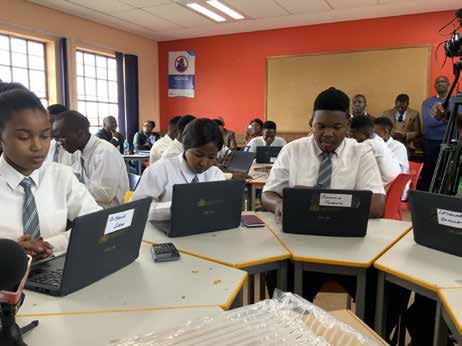
“When a learner submits their assessment, the system gives the educator immediate feedback,” said Ngoveni.
Parents also benefit. Using the platform, they can see how their children are doing at school.
Parents can select the day’s lesson in a particular subject and ask their child to write a test on it. The test results are available straight away, so they will know immediately if their child needs extra lessons.
Ngoveni said the platform was launched timeously, as pupils are preparing for final year exams.
The platform aims to increase access to digital content, and enhance opportunities for continuous assessment of activities to support curriculum delivery in ICT-enabled schools.
MEC Lesufi said the department aims to encourage and support the bring your own device model towards sustainability of e-learning in our schools. “This model enables schools that have their own ICT initiatives to benefit from the investment made by the department on the digitising of content, by having this content availed to them through the platform,” said the MEC.
The department said the platform also aims to support teaching and learning by providing digital content access, digitised assessment practices, interactive revision material and step-by-step videos that show how to approach and respond to questions in an exam.
The prioritised subjects are grades 10 to 12 mathematics, physical sciences, mathematical literacy, geography, accounting, languages (Isizulu and Sepedi) and life sciences. For grades 8 and 9 the subjects are mathematics, natural sciences and technology.
Good nutrition promotes overall health
Good nutrition promotes overall health angenithaEating whole foods rather than ultra-processed ones is much better for your health.
Eating healthily to ensure good nutrition is a key component of a healthy lifestyle.
This is according to the National Department of Health, which said that healthy eating and regular exercise can help to achieve and maintain a healthy weight and reduce the risk of diseases such as diabetes, high blood pressure, heart disease and cancer.
The risk of contracting Non – Communicable Diseases (NCDs) starts in childhood and builds up throughout life. 
NCDs include strokes, heart diseases, cancers, diabetes and chronic kidney disease.
The concept of optimising nutrition in the first 1 000 days (from conception to two years old) is important to prevent over- and under-nutrition.
However, regularly eating mostly whole foods - which are low in added sugar, fat and salt and naturally higher in vitamins, minerals and fibre - can help to prevent unwanted weight gain, NCDs and death from these diseases.
The importance of whole foods
Whole foods have not been refined, have been processed as little as possible and are eaten in their natural state. They include unprocessed food, such as the edible parts of fruits and vegetables; and minimally processed food, such as oats, brown rice and legumes. Both should have no added salt, sugar, oils or fats.
While processed foods still resemble the original food item, they have been modified to the point where they no longer resemble the food from which they originate and contain very little or none of the original nutrients. They also typically consist of five or more ingredients such as sugar, oils, fats, salt, anti-oxidants and preservatives. Sugary drinks are a good example.
These ingredients make products taste better, but when consumed in large quantities they can cause an excessive intake of energy that can contribute to weight gain. High salt consumption is also associated with hypertension and cardiovascular diseases.
Save money
Food is expensive. The department has provided the following tips to help you cut costs, while still being able to prepare healthy meals:
- Look for store sales or specials.
- Check expiry dates and the quality of food you buy on sale.
- Ensure you have enough extra money and storage space to buy in bulk (but check that you will use the food before it expires).
- For better value, buy fruits and vegetables when they are in season.
- Dry products like maize meal, wheat flour, rice, pasta, couscous and frozen foods keep for a longer period and can be bought in bulk.
- Single portion items are often more expensive than buying in bulk.
- Buy fewer canned, prepared or ready-to-eat foods. They cost more and are often higher in sugar, salt and fat.
- Ready-to-eat bottled baby foods are costly. Use fresh foods and vegetables that can be pureed or mashed to the right consistency.
* Information courtesy of the National Department of Health.
Gymnast makes history by qualifying for the Olympics
Gymnast makes history by qualifying for the Olympics BathandwaFrom being an energetic and active child who started gymnastics at the age of six, Caitlin Rooskrantz has just made history by becoming the first South African woman to qualify for the Olympic Games in the artistic gymnastics category.
Originally from Johannesburg, Gauteng the 17-year-old qualified for the 2020 Tokyo Olympics, after a strong performance at the Artistic World Championships in Stuttgart, Germany.
Discovering gymnastics
Caitlin’s mom Veda recognised her talents very early on.
“Caitlin was an active child with endless energy jumping, tumbling and climbing all the time. She participated in Monkeynastics in preschool and all this made us realise that we needed to find a sport where she can channel this energy,” said Veda.
“We enrolled her in a club in Parkhurst at the age of six where her talent was quickly spotted. We transferred her to JGC centre, an excellent club in Newlands, Johannesburg.”
Caitlin said she has always loved the challenge of gymnastics.
“The physical challenges and high level of activity is what drew me to the sport, as well as the opportunity to travel the world.”
The dream of qualifying for the Olympics
For Caitlin, participating in the Olympics has always been one of her greatest goals.
“Growing up this was one of my great goals, to go to the Olympics to represent my country. Now I’ve done it, it is an absolute feeling of triumph and pride. I'm extremely proud of myself and for my country, knowing I made history and made a difference in my society,” Caitlin said.
She explains that qualifying for the Olympics has not been an easy journey. She trains for more than four hours every day, while also following a strict diet and training her mental strength. Being in grade 12, she has also had to fit her studies into her hectic schedule.
 “It has been a huge amount of hard work, sacrifices, dedication and perseverance. Literally blood, sweat and tears go into achieving this. It is also about trying to stay positive and holding on to your dreams in difficult times, and fighting through injuries and pain.”
“It has been a huge amount of hard work, sacrifices, dedication and perseverance. Literally blood, sweat and tears go into achieving this. It is also about trying to stay positive and holding on to your dreams in difficult times, and fighting through injuries and pain.”
Gymnastics as a sport
Caitlin says that gymnastics is a wonderful sport for children to get involved in.
“It is worthwhile and rewarding. You will learn many important life lessons. It builds your character and opens up doors into your future. Never give up...persevere no matter what. If you love it, do it...keep working hard and you will reap the rewards.”
Jobs: Department of Labour - Nov 2019
Jobs: Department of Labour - Nov 2019 BathandwaDirector: Planning, Monitoring and Evaluation
Office of the Chief Operating Officer, Head Office
Reference No: HR 4/19/11/01 HO
Salary: All inclusive: R 1 057 326.00 per annum
Enquiries: COO Ms Bronkhorst, Tel: (012) 309 4969
Head Office : Director: Human Resources Management: Private Bag X 117, Pretoria, 0001
Deputy Director: Fleet Management Services
Directorate: Fleet and Auxiliary Services, Head Office
Reference No: HR 4/19/10/01 HO
Salary: All-inclusive: R 733 257.00 per annum
Enquiries: Ms. T Malindzisa, Tel: 012 309 4246
Head Office: Chief Director: Human Resources Management: Private Bag X 117, Pretoria, 0001
Assistant Director: Finance
Provincial Office: Eastern Cape
Reference No: HR 5/1/2/3/72EC
Commencing: R 376 596 Per annum
Enquiries: Mr WC Mafu, Tel: (043) 702 7500
Provincial Office: Chief Director: Provincial Operations: Private Bag x9005, East London, 5200
Closing date for applications: 18 November 2019 at 16:00 For full details of the advertised posts visit our website: www.labour.gov.za
Applications must be submitted on a Z83 form, obtainable from any Public Service Department or on the internet at www.gov.za/documents. The fully completed and signed form Z83( Section A and B Compulsory) should be accompanied by a recently updated, comprehensive CV as well as recently certified copies of all qualification(s), academic records including a Senior Certificate and ID-document [Driver’s license where applicable](Certified copy of a copy will not be accepted). The certification must be within three (3) months as at the advert closing date. Non-RSA Citizens/Permanent Resident Permit Holders must attach a copy of their Permanent Residence Permits to their applications. Should you be in possession of a foreign qualification, it must be accompanied by an evaluation certificate from the South African Qualification Authority (SAQA) including Matric. Applicants who do not comply with the above-mentioned requirements, as well as applications received late, will not be considered. The Department does not accept applications via fax or email. Failure to submit all the requested documents will result in the application not being considered. Correspondence will be limited to short-listed candidates only. If you have not been contacted within eight (8) weeks after the closing date of this advertisement, please accept that your application was unsuccessful. Suitable candidates will be subjected to a personnel suitability check (criminal record, citizenship, credit record checks, qualification verification and employment verification). Where applicable, candidates will be subjected to a skills/knowledge test. All shortlisted candidates for SMS posts will be subjected to a technical competency exercise that intends to test relevant technical elements of the job, the logistics of which be communicated by the Department. Following the interview and technical exercise, the selection panel will recommend candidates to attend generic managerial competencies using the mandated DPSA SMS competency assessment tools. Successful candidates will be appointed on a probation period of 12 months. The Department reserves the right not to make any appointment(s) to the above post. The successful candidate will be expected to sign a performance agreement. The Department of Labour is an equal opportunity affirmative action employer. The employment decision shall be informed by the Employment Equity Plan of the Department. It is the Department’s intention to promote equity (race, gender and disability) through the filling of this post(s) with a candidate whose transfer / promotion / appointment will promote representativity in line with the numerical targets as contained in our Employment Equity Plan.
KZN supports young entrepreneurs
KZN supports young entrepreneurs UrsulaOver 50 emerging young entrepreneurs from across KwaZulu-Natal (KZN) get to share a R70 million funding injection from the provincial government.
KZN Premier Sihle Zikalala  launched the KZN Youth Business Development Fund at the beginning of 2019.
launched the KZN Youth Business Development Fund at the beginning of 2019.
The fund wants a long-lasting solution for youth entrepreneurs who do not qualify for bank loans because they do not have a credit history or collateral. 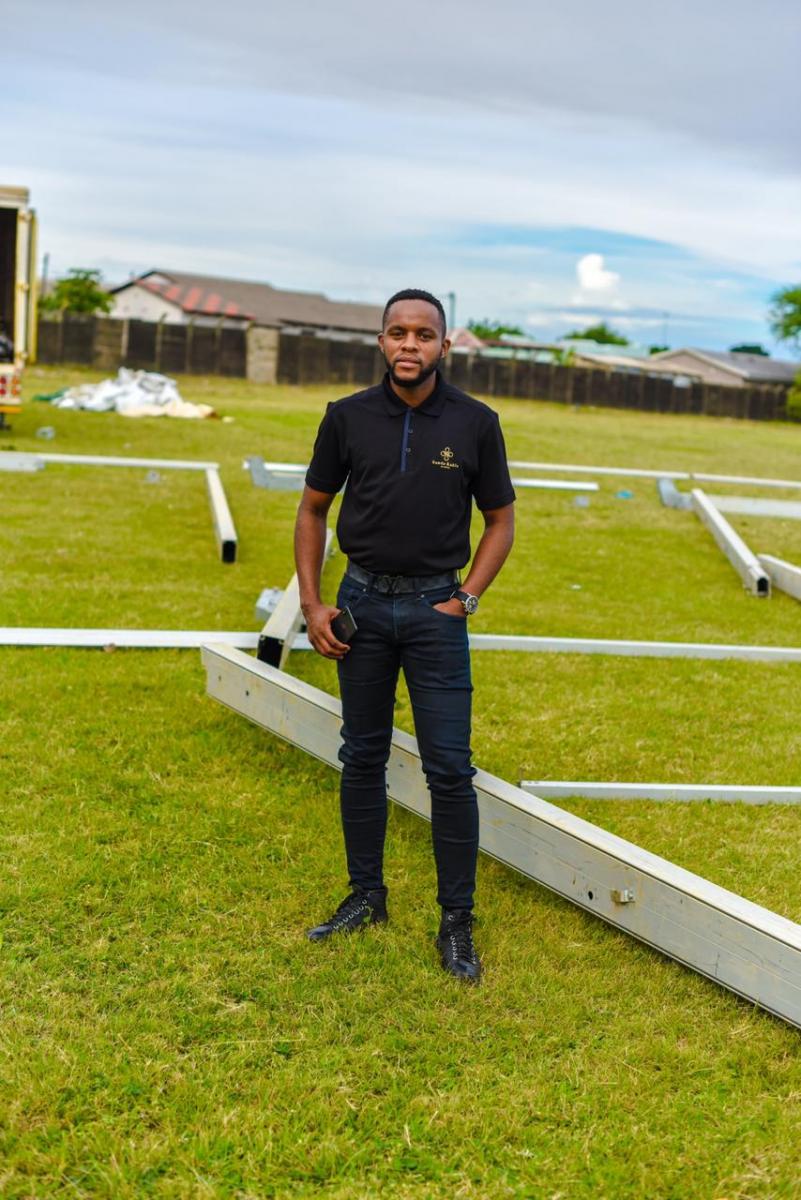
During the year, the provincial government invited young people to submit their business proposals. A team of officials scrutinised and evaluated 2 246 applications to find the best proposals.
“From the calibre of applications received, it is clear that young people are hungry to play a meaningful role in the economy. When we announced this programme early this year, we only had R50 million and we now have R70 million," said the Premier.
ABSA boosted the ground-breaking initiative by setting up a loan facility.
The Premier recently announced all the successful and deserving beneficiaries.
He said no grants will be paid into beneficiaries’ accounts. Instead, funds would go directly towards purchasing equipment and instruments to enable recipients to run their enterprises better.
Beneficiary Sanele Ngcobo (30) from Pietermaritzburg said he hoped that the funds will help him grow his events management company, Sandakahle Trading.
“I registered the company in 2007 while I was still in university because I needed to earn an income. It all started with hiring tents and furniture for events, until I was exposed to other aspects of events management in 2010,” he said.
Ngcobo said his growing company provides 35 jobs to locals.
“About six years ago, I started to buy my own products including tents, furniture and a sound system that I hire out to clients in various parts of the province,” he said.
Premier Zikalala has encouraged all applicants, who were not successful this time, around to not give up.
Kgomotso community centre taking care of the youth
Kgomotso community centre taking care of the youth UrsulaVulnerable children and youth in Greater Taung Local Municipality in the North West are benefitting from the psychosocial care and support services offered at the Kgomotso Community Care Centre.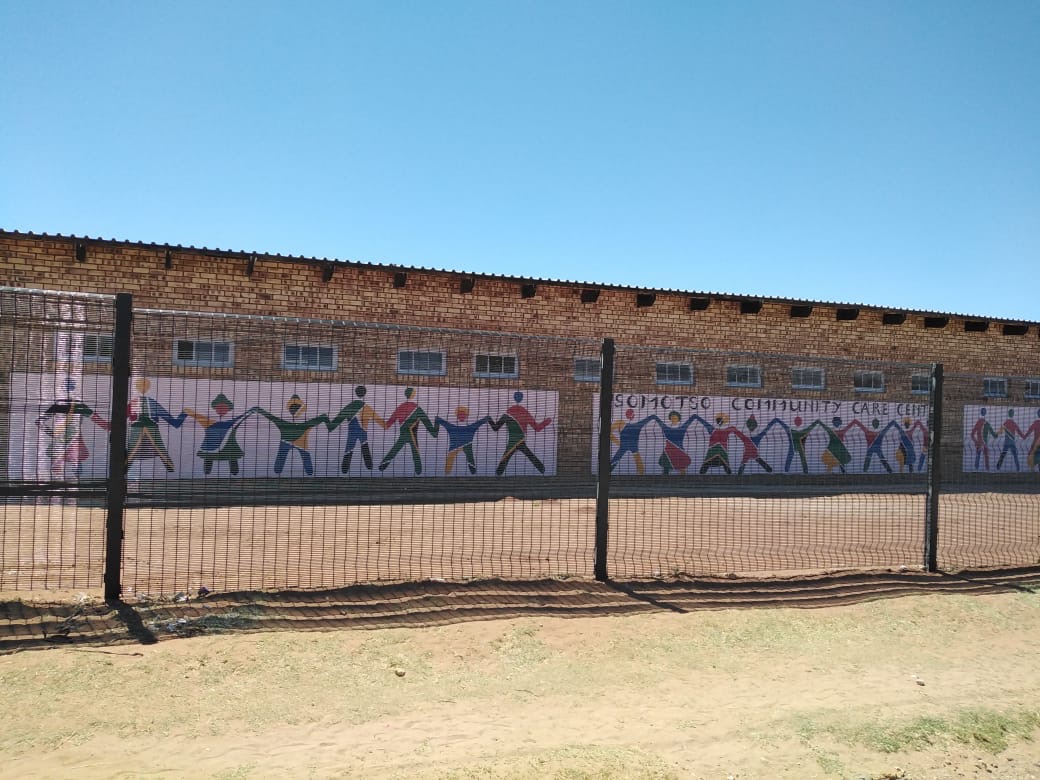
Kgomotso Community Care Centre Social Worker Stella Makhubele said a group of women in Kgomotso village established the centre in 2003 when they realised that many young children and youths were affected by HIV/AIDS.
“As mothers and sisters in the community, they stood together in a fight against many challenges brought by the effect of HIV/AIDS in the community, which mostly threatened the lives and the future of young people,” said Makhubele.
The centre provides services and skills development to orphans and vulnerable children, including child-headed households and youth. It also serves as service point to bring government services to the doorstep of rural communities. This includes services rendered by the departments of Social Development, Home Affairs, Health and public entities such as the South African Social Security Agency and the National Development Agency.
Makhubele said the centre also offers families support group programmes that cater for members of affected families, sports activities and community outreach programmes.
She said the centre employs 31 people, including 16 caregivers, who regularly visit communities to identify families in and around Kgomotso village who need their services.
"Most of the beneficiaries of the centre’s programmes are child-headed households and youth."
German-South African partnership
The Department of Social Development started funding the centre in 2009.
As a result of the department’s partnership with KfW, which is a German state-owned development bank, the centre now has new facilities, which means it can offer more services.
Kgomotso is one of six community care centres in the North West established with financial and technical assistance from the KfW.
The partnership between the Department of Social Development and KfW has built 17 community care centres in KwaZulu-Natal, Limpopo and the North West.
She said the goal of building community care centres in rural communities is to enhance the quality of services to orphans and vulnerable children within their own communities.
Community care centres complement existing child protection interventions and services. They aim to strengthen families and communities as the first line of response in the care and support of vulnerable children.
Knowing CPR can be a life saver
Knowing CPR can be a life saver angenithaWith summer and the festive season upon us, knowing what to do in an emergency can save a life.
Choking, smoke inhalation or drowning can happen suddenly and getting help can be the difference between life and death.
Being able to do cardiopulmonary resuscitation (CPR) can be crucial.
The Western Cape Department of Health says CPR is an emergency procedure done to manually keep the brain functioning.
This life-saving technique is very useful in many emergencies, including heart attacks or near drownings, where someone's breathing or heartbeat has stopped.”
The best way to perform CPR is to follow the Circulation, Airway and Breathing method (CAB system) which helps a first-responder remember the sequence of steps during CPR.
The Resuscitation Council of Southern Africa (RCSA) said when performing CPR on an unconscious adult the procedure is 30 thrusts in the middle of the chest, followed by two breaths on the unconscious victim. CPR must continue until help arrives.
When performing CPR on a child who is choking, the child gets five back slaps and up to five chest thrusts. Next, one must open the baby’s mouth to look for and remove any visible foreign material.
If this works, you place the patient in the recovery position and check for continued adequate breathing, reassessing the patient continuously.
If this does not work, one must apply 30 chest compressions, then look inside the mouth and remove any foreign object, and administer two breaths until the baby is able to breathe again or help arrives.
If you're alone and have immediate access to a telephone, call the ambulance yourself before beginning CPR.
For more information on performing CPR, visit https://www. westerncape.gov.za/ general-publication/ cardiopulmonaryresuscitation-cpr. Alternatively, phone the RCSA at 011 478 3989 or visit: www.resus.co.za
Local film maker knuckles down international praise
Local film maker knuckles down international praise BathandwaFilm maker Jahmil Qubeka is passionate about African stories and respects the African art of story-telling.
Born in the Eastern Cape, Qubeka has strong ties with the province. His latest film Knuckle City is a crime story set in the Mdantsane boxing tradition.
“We had our international premier of the film at the Toronto International Film Festival recently. The film had three public screenings which were packed to the rafters. It was also screened for the world's press and has to date received a 100 percent score on the Rotten Tomatoes website,” said the film maker.
Qubeka said it was time African stories came to the fore. “Our perspective as Africans has been placed on the back burner for the past 2000 years. It’s evident that the mother continent has a story to tell. If I can be a vessel to depict grain of its message then I will die a very happy man,” he said.
Local film industry needs doers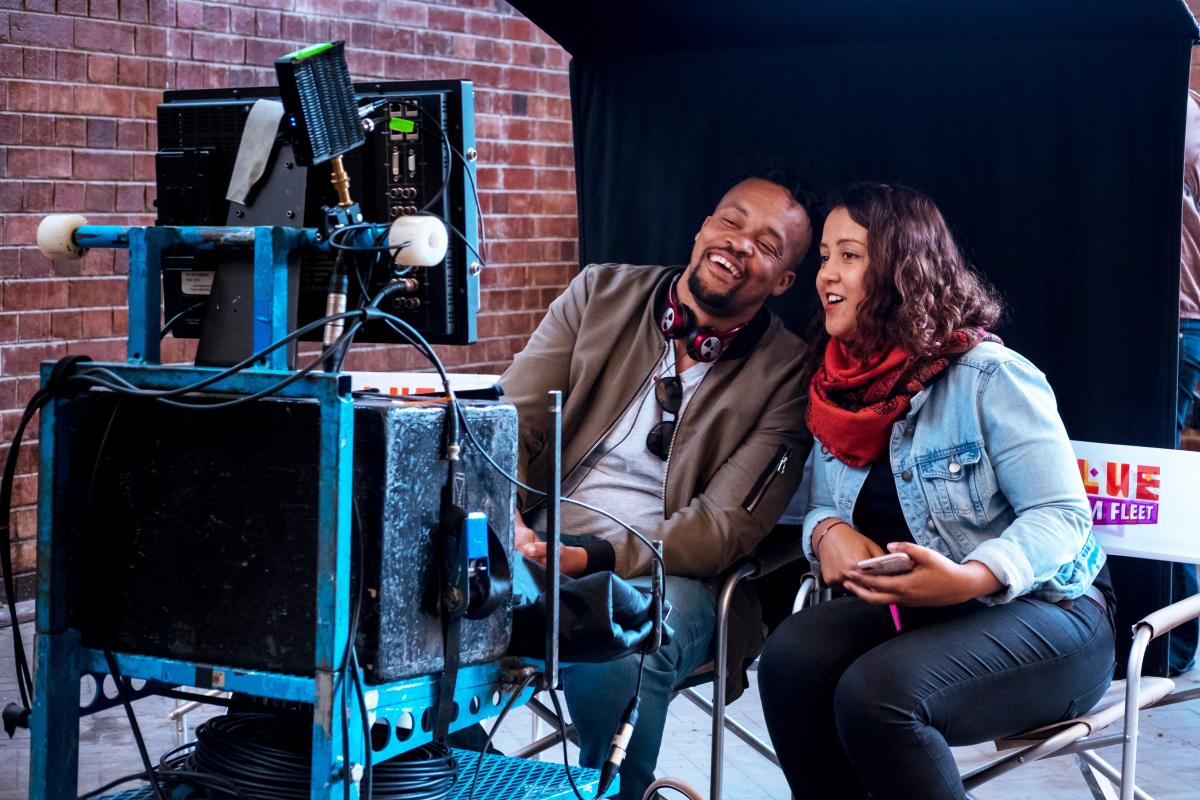
Qubeka is also the co-owner of Yellowbone Entertainment, a production house that was instrumental in the production of Knuckle City.
He said that film-making is the craft of doers. His advice to aspiring film-makers is simply: “Stop aspiring and begin to do. This is a quest that requires an unbridled, self-sacrificing pursuit of its infinite spoils.”
Knuckle City has also 'garnered much hype' at the Durban International Film Festival. It will be released in South African cinemas on 27 December 2019.
The Eastern Cape Development Corporation (ECDC) has supported Yellowbone Entertainment.
“The ECDC has made a significant investment in three of my feature films, of which two have been selected to represent South Africa in the race for nomination for Best International Feature Film at the Oscars,” said Qubeka.
This is in addition to marketing support and the festival attendance required for these films. Qubeka said advances in film distribution models, particularly streaming services, is a game-changer and bodes well for the growth of the South African film industry.
Qubeka commented that the South African film industry will grow rapidly with corresponding advancements in policy and administration and less bureaucracy.
How to contact the ECDC? Call 043 704 5600 or email info@ecdc.co.za
Ngomane capturing the world through pictures
Ngomane capturing the world through pictures UrsulaNeville Ngomane (20) from Bushbuckridge, Limpopo, is achieving his dreams after winning a prestigious award for young photographers. 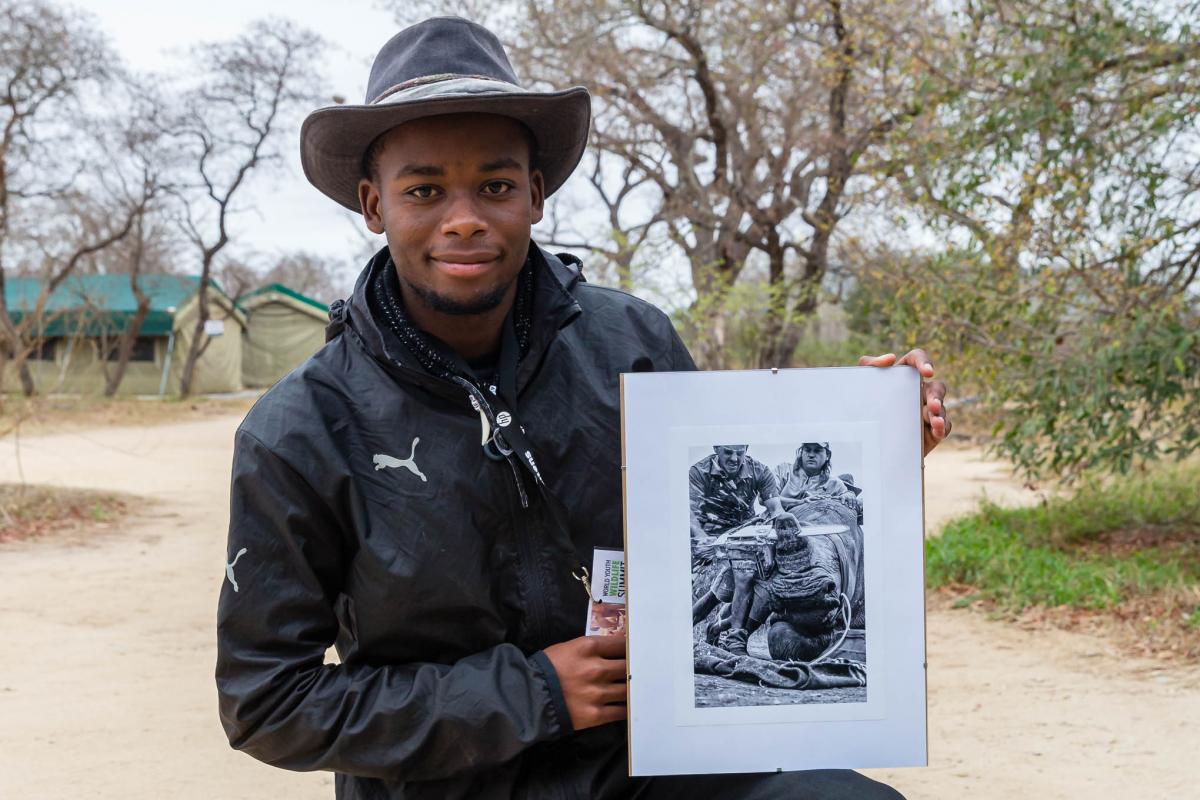
Ngomane was named the Young Photographer of the Year in the International Chartered Institute of Water (CIWEM) and Environmental Management photography competition. His powerful photograph, Desperate Measures, shows a rhino’s horn being cut off in order to prevent the animal from being poached. It beat over 4 000 other international entries.
“When I heard that I had won the award, I thought it was a joke. I was so pleasantly surprised and didn’t know what to do or say. I have always imagined being amongst the best photographers in the world so this was a dream come true,” said Ngomane. As part of his winnings, Ngomane walked away with brand new camera equipment.
Ngomane first came across photography in 2015, when he borrowed an old camera from one of his teachers.
"I love everything about photography. It allows you to tell a story in the way you want it to be told. It allows you to capture something beautiful or powerful in one image.”
Ngomane now has his own company, Young Photographers, and is giving back to his community through Eco-Play, which teaches children at orphanages and other childcare facilities about conservation through fun activities.
“I have always said that if you find something you are passionate about, then you must do everything you can to feed that passion. That is the key to making a success of yourself in life, no matter where you come from,” he said.
North West gets more nurses
North West gets more nurses UrsulaThe North West Department of Health has deployed more than 500 new nursing graduates to public health facilities to improve the provision of healthcare. 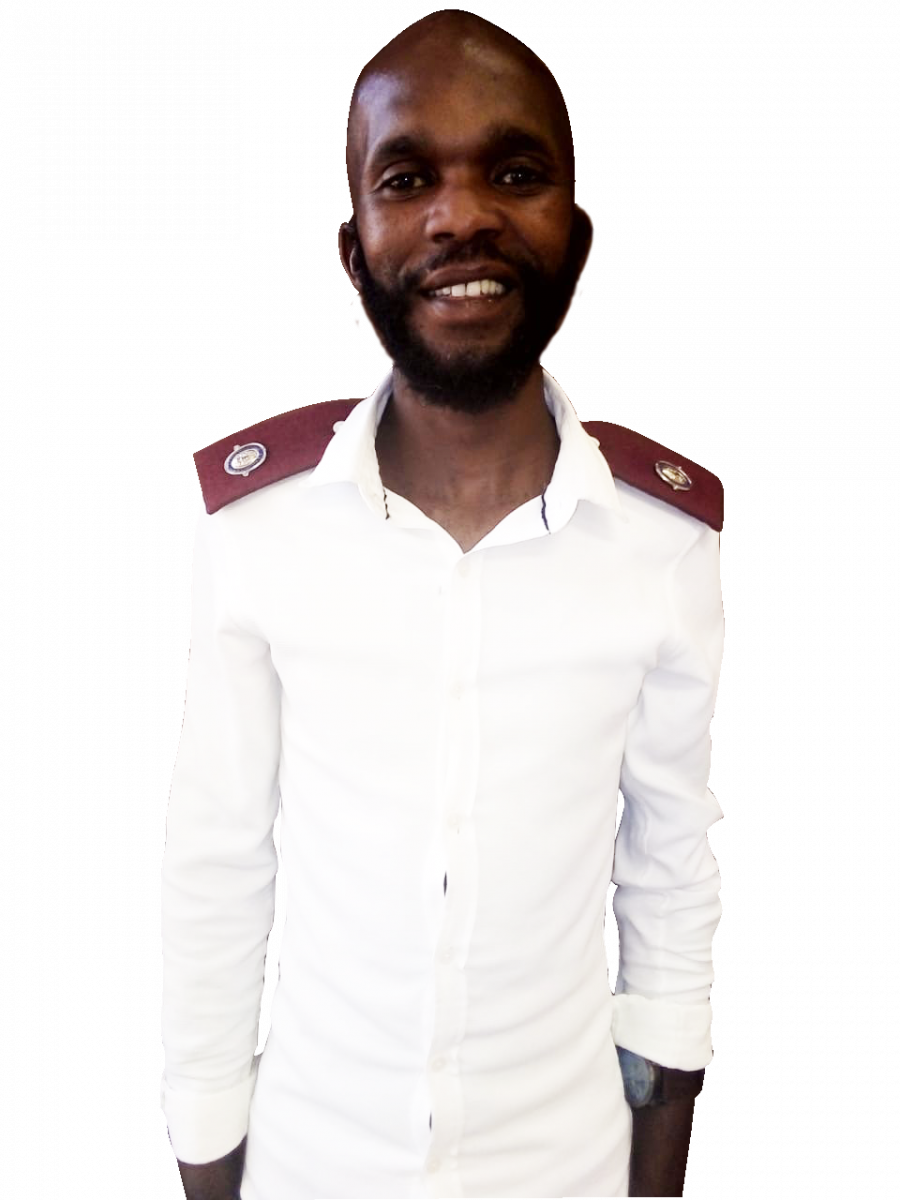
Recently, 506 nurses graduated from North West Nursing College.
They graduated in different fields including comprehensive nursing, midwifery, psychiatric nursing, advanced midwifery and neonatal nursing science, operating theatre and clinical nursing science.
The new college trained nurses and 59 university graduates are completing a year of compulsory community service before they register with the South African Nursing Council.
North West Health MEC Madoda Sambatha said it was the department’s responsibility to absorb certified nurses without delay.
Addressing the graduates, the MEC said their dedication would be tested and society will know who has chosen nursing because they feel committed to serve and who has done so simply to earn an income.
Passion for nursing
Nursing graduate Nkagisang Tsubane (32) from General de la Rey Hospital passed Matric in 2005. When his father passed away in 2006, the family lost its breadwinner.
In 2009, he applied for a learnership to study auxiliary nursing through the Department of Health and qualified in 2011.
Getting a Health and Welfare Sector Education and Training Authority bursary meant he could study further.
He had found his passion. In 2012, he completed a course in enrolled nursing and later a bridging nursing course in 2015 so that he would be a qualified general nurse. “I graduated this year,” he said.
Tsubane, the sixth out of a family of seven children.
"I am proud of my achievement because I have always believed that education is the only way I could help my family out of poverty," he said.
Northern Cape farms get drought aid
Northern Cape farms get drought aid angenithaGovernment has stepped in to aid Northern Cape farmers whose livelihood is at risk because of drought.
Government and stakeholders in the agricultural sector are helping farmers affected by severe drought in the Northern Cape’s five districts. Recently, Deputy President David Mabuza visited Aggeneys in Namakwa District Municipality, in the Northern Cape, to announce urgent interventions.
Almost 15 500 farms with a carrying capacity of 613 447 large stock units, covering more than 20 million hectares, are severely affected.
Without above-average summer rain this is estimated to escalate to a million large stock units.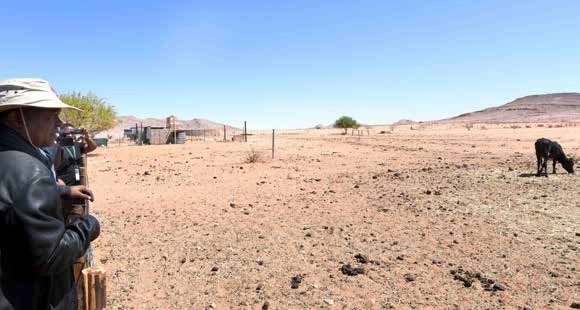
In providing urgent relief to the Northern Cape farming community, government has reprioritised about R30 million for procuring and distributing fodder as a short-term measure.
It will also drill more boreholes and help increase the provincial fodder bank’s capacity.
In addition, government will engage with the Land Bank on ways to provide relief for defaulting farmers affected by drought.
Hedley Joe Maasdorp (24) from Zuurwater Farm said they were fortunate to be amongst the small-hold farmers who received government aid this year.
Zuurwater needs rain
Maasdorp said they had received enough Lucerne to feed their livestock for about five weeks. “This is going to assist us a lot and within this time we will also look at ways of moving forward to help ourselves further,” he said.
Maasdorp has farmed with his parents for the past 15 years.
“We initially started farming in community grounds many years ago, but we managed to buy our own land in 2006 and we are still using it for farming,” he said.
They specialise in cattle and sheep, but also breed goats and donkeys.
Maasdorp said drought has affected livestock production.
“We experienced the first extreme drought in 2008, but somehow we survived it. I think we last had good rains in 2013 and that was a good year for us because we had a total of 700 sheep and 86 cattle. That is the highest number we have ever reached,” he said.
“Due to the persisting drought, some of our animals died and we had to sell others so that we could feed the ones that we are left with. We have 22 cattle and 70 sheep. That is a huge difference compared
to what we had in 2013,” he said.
Plans to curb load-shedding
Plans to curb load-shedding vuyelwanUnion Buildings
Unexpected load-shedding disrupts the lives of millions of people in their homes, workplaces and businesses.
The cost to our economy of power outages is significant. It contributes to investor unease at a time when we are trying to attract more domestic and foreign capital to South Africa and to improve our global rankings on ease of doing business. It is also understandable that South Africans become frustrated and angry.
The latest round of load-shedding makes even clearer the urgency with which we must act to protect our energy supply.
While technicians are working around the clock to fix problems at several power stations and restore the grid to stability, government last week released the updated Integrated Resource Plan (IRP). It is our policy blueprint for the country’s industrial, commercial and household energy needs until 2030. It provides clarity and certainty on a crucial part of our development path. 
The plan focuses on affordable electricity, reduced emissions and water consumption and a diversity of generation sources. Significantly, given the events of the last week, the updated IRP takes into account the constraints facing Eskom, and deals with the desire by electricity users to have alternatives to meet their energy requirements.
The IRP supports a diversified energy mix that includes coal, natural gas, renewable energy, battery storage and nuclear power. Because coal remains the dominant energy source for our country, we will be focusing on attracting investment in high efficiency low emissions coal technologies. South Africa has to reduce its carbon emissions in line with our commitments at the climate change conference held in Paris in 2015. Many other nations have made commitments to reduce their own carbon emissions.
The IRP envisages a move towards steadily reducing emissions through a greater uptake of renewables. Alongside this, we need to implement a ‘just transition’ to ensure that communities and workers whose livelihoods depend on the fossil fuel industries are not left behind.
That is why we will be developing a clear framework for the process of decommissioning coal fired power stations that have reached the end of their operational cycle.
The global energy transition will present challenges for communities and workers in the areas where fossil fuel powered energy generation takes place. However it also presents opportunities for those affected to have access to technologies that are more cost-effective and better for human health. It also presents significant investment opportunities in cleaner energies.
For example, the recent natural gas find in the Outeniqua Basin off the Southern Cape Coast gives great hope for future discoveries of coastal gas, including recoverable shale. Opportunities also exist in the fields of biomass, biogas and cogeneration.
While the IRP spells out our long-term plans, we must address our immediate and most pressing challenge to get the lights back on and keep them on. This means we need to get the utility back on sound financial and operational footing.
Though there has been progress in implementing its nine-point plan, Eskom’s financial position remains untenable and its current operational model difficult.
We will soon be announcing the appointment of a permanent Eskom CEO who, together with a strengthened board, will be tasked with turning the entity around. They will be guided by the path set out in the special paper on Eskom, which will be released shortly.
The restructuring of Eskom into three entities – generation, transmission and distribution – is critical if we are to respond effectively to the evolving technologies and developments in the global energy industry. Eskom needs improve its credit rating so that it can raise funding for both its operational and capital expenditure.
The sheer scale of Eskom’s debt is daunting. Further bailouts are putting pressure on an already constrained fiscus. As government has made clear, the most recent support to Eskom comes with stringent conditions. Fruitless and wasteful expenditure must be stopped.
We also must attend to the debt owed to Eskom with urgency. Currently, Eskom is owed in excess of R23.5 billion by defaulting municipalities, and this continues to increase. This municipal debt and that from national government departments must be recovered.
Eskom is also owed huge amounts of money by individual users. This is the time for a frank discussion on the payment of owed money to Eskom by individual users. The culture of non-payment exists in several parts of the country. Boycotting payment for services had a place in apartheid South Africa. It was an effective tool to mobilise communities against an unjust system. But it has no place in present day South Africa. If public utilities like Eskom are to survive, then all users need to pay for the services they receive.
As government, we will continue to do all within our means to restore the viability of Eskom. Tough decisions will have to be made. There will have to be trade-offs. All sectors of society, especially government, business and labour, must work together to bring this crisis to an end.
Our citizens deserve to be able to conduct their lives, go to school and operate their businesses confident that they will not be plunged into darkness without warning. At the same time, as citizens, we must understand that when we do not pay, we are part of the problem.
In trying to improve our own standards of living and those of our communities we all have a contribution to make. Our collective future depends on it.
Protect yourself against rabies
Protect yourself against rabies UrsulaThe World Health Organisation (WHO) says rabies kills more than 55 000 people globally every year, mainly in Asia and Africa. This is despite the disease being vaccine-preventable. 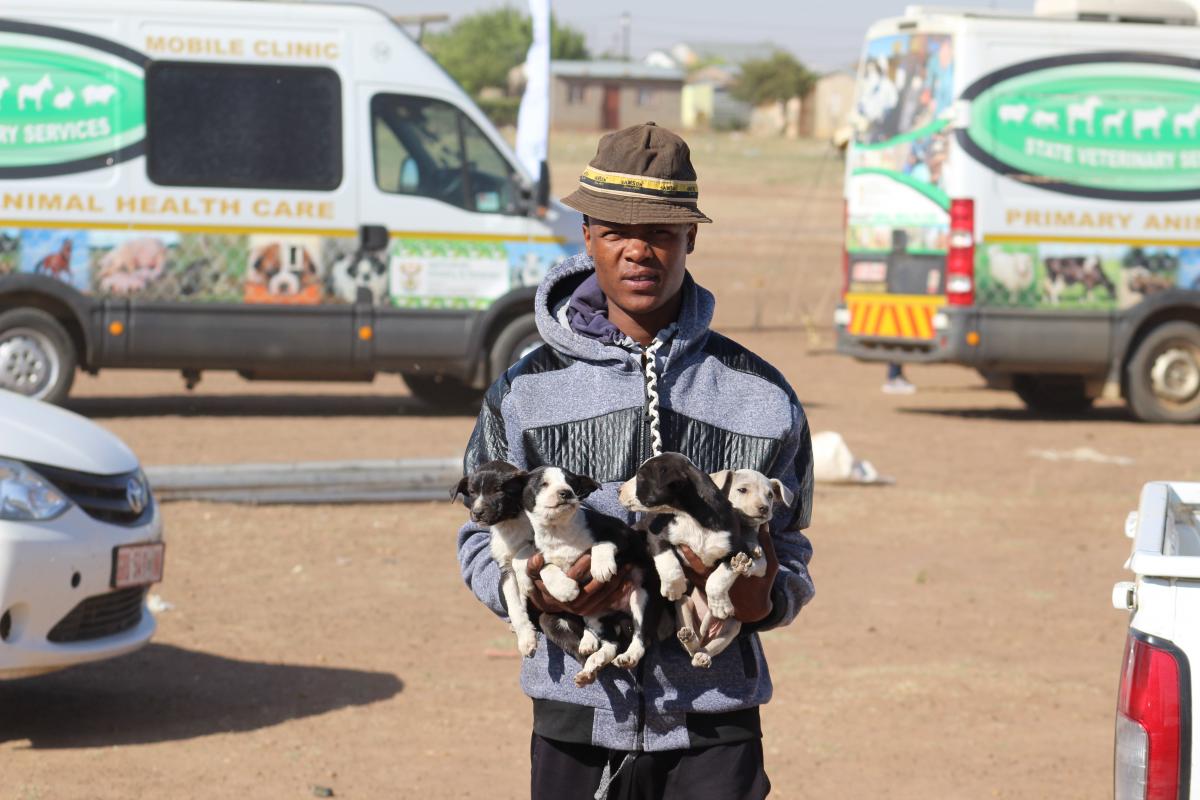
This viral disease is transmitted from animals (dogs in 99 percent of cases) to humans, causing inflammation of the brain.
In order for humans to prevent contracting the disease, it is advisable that they vaccinate dogs and prevent dog bites.
How do you get infected?
The National Institute for Communicable Diseases (NICD) says the virus is transmitted through the saliva of rabid animals.
When the virus reaches the brain, it further replicates, causing physical symptoms.
“About 40 percent of people bitten by suspected rabid animals are children under 15 years of age,” WHO said.
Promptly washing a wound thoroughly with soap and water, after contact with a suspected rabid animal, is crucial and can save lives.
Rabies can affect domestic and wild animals
The WHO said initial symptoms of rabies include fever with pain and unusual or unexplained tingling, pricking or burning sensation at the wound site. As the virus spreads to the central nervous system, progressive and fatal inflammation of the brain and spinal cord develops.
How to prevent rabies
“Dog vaccination reduces deaths attributable to rabies and the need for post-exposure prophylaxis as a part of dog bite patient care. Every year, more than 29 million people worldwide receive a post-bite vaccination. This is estimated to prevent hundreds of thousands of rabies deaths annually,” the organisation said.
Recently, the North West Department of Agriculture and Rural Development led a rabies campaign in Ottosdal that offered free rabies vaccinations for pets there and in surrounding communities.
“Since the beginning of 2019, our province has reported at least 18 cases of rabies,” the department said.
North West Deputy Director for Animal Health Dr Simon Mosenogi said that it is important to vaccinate pets, especially cats and dogs, annually to prevent rabies.
He said this year’s campaign has reached 1 305 dogs and 29 cats in the province.
Citizens are advised to report any suspicious symptoms of rabies to any local state veterinary offices and health facilities in the country.
Schools and libraries get child-friendly books
Schools and libraries get child-friendly books BathandwaPremier of the Western Cape Alan Winde recently handed over hundreds of children’s books to Hanover Park Public Library near Cape Town.
The Western Cape Government is running a book donation drive named the Book Han(d)over Project.
Private companies and individuals have donated over 8 000 books to the massive campaign. They are being distributed to local schools and libraries.
“Developing a reading culture among children is of the utmost importance if we want to give them the best educational opportunities. South Africa has a long way to go in developing reading literacy and comprehension,” said Premier Winde.
The Premier said libraries are important in communities because they offer safe spaces where children and adults alike can expand their knowledge.
“Reading should not only be taking place at school, but in the home as well, and community libraries like the Hanover Park Library play an important role in ensuring that communities have access to books and encouraging reading among children,” he added.
Premier Winde thanked businesses and individuals in the Western Cape for supporting the book drive and helping it succeed. “As a result of the success, we are able to provide books to schools and libraries across the province.”
Donations of new or used children’s books in good condition in all languages, and in good condition as well as educational books, school textbooks, and dictionaries can be dropped off at the Western Cape Government Walk-In Centre at 7 Wale Street, Cape Town.
Why read?
In 2017, the Progress in International Reading Literacy Study reported on South Africa’s poor literacy levels.
Nearly eight out of 10 Grade Four learners cannot read for meaning.
To address this, in his State of the Nation Address, President Cyril Ramaphosa called for the country to improve its literacy levels, starting with improving its reading capabilities.
He said early reading is the basic foundation that determines a child’s educational progress, through school, through higher education and into the workplace. aa
South Africans learn jewellery design from China’s best
South Africans learn jewellery design from China’s best UrsulaA partnership between the Chinese and South African governments is set to produce new artisans in the jewellery sector.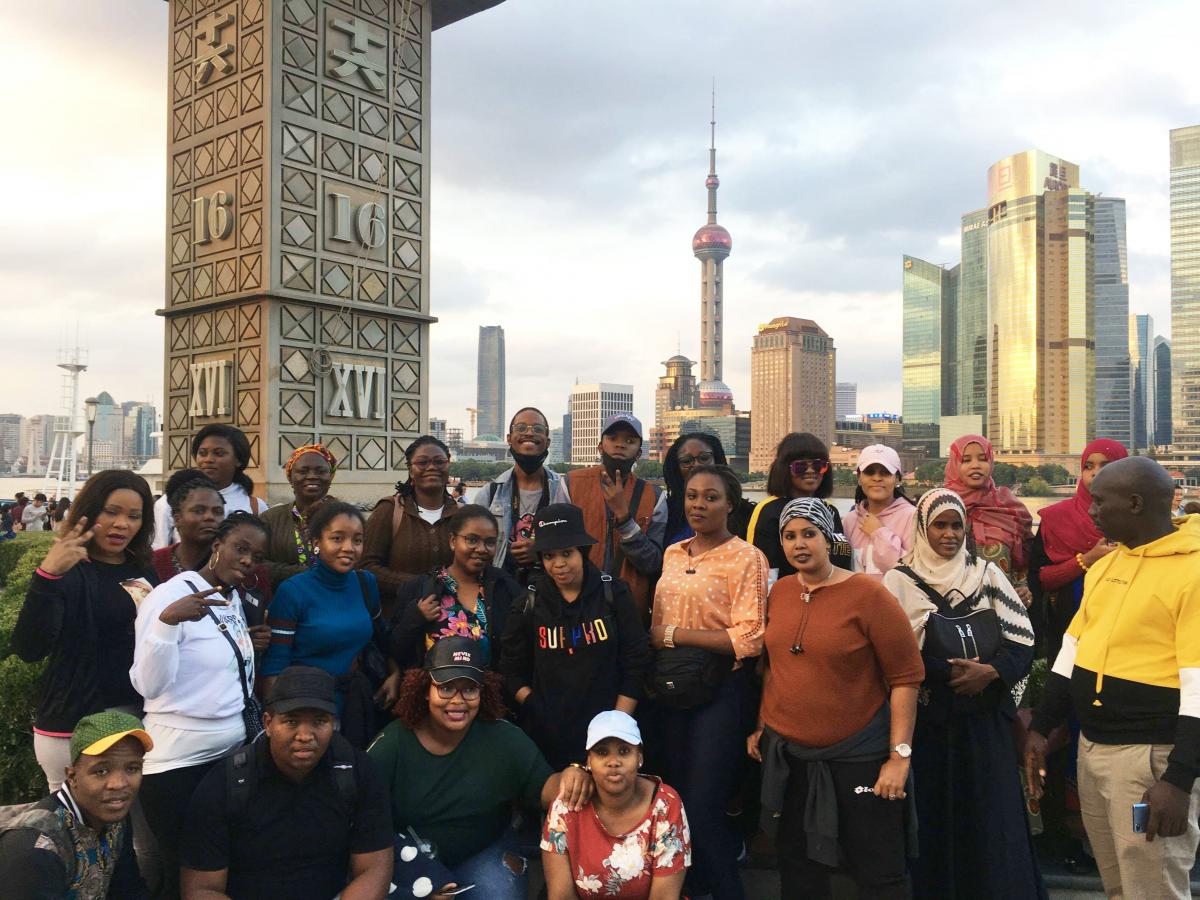
Ten South Africans are on a 50-day jewellery making course in China where they are learning to create different types of silver jewellery including bracelets, earrings and neck pieces.
Fashion designer, Simo Matomela (31) who is originally from Butterworth in the Eastern Cape, said the skills and knowledge he has gained will help him grow his fashion design business.
“The skills I am gaining from attending this course will enable me to make my own jewellery as accessories to the clothes I design for my clients. Jewellery on its own has a big market,” Matomela said.
He learnt about the programme through the Department of Trade and Industry’s (dti) list of state-supported seminars in China.
“I received a list of seminars to China and I picked the one that would add to my profile,” he said.
He is currently receiving jewellery design skills at Hunan International Business Vocational College in China.
The training is sponsored by the Chinese Ministry of Commerce.
“I picked artisan skills training because those are the most needed in South Africa. As designers we still need skilled artisans to craft our ideas,” he said.
As part of the training, the group also visited factories where jewellery is made using the latest technological advances.
This was Matomela’s second government-supported trip.
In 2017 he participated in a training course that opened his eyes to the latest advances in fashion design.
“That first trip showed me a world that I could not even imagine,” he said.
Matomela said he is looking to expand his business after his interaction with his Asian counterparts, who showed him there is a market for his Africa-inspired design.
“Currently, I work with a partner and we have employed two people. We want to expand and open a factory and hire more people,” Matomela said.
Did you know?
The dti has several programmes that will send entrepreneurs to China to exhibit their products.
For more information, call Teaman Nghunyule from dti at 012 394 5726.
Top young farmer dreams big
Top young farmer dreams big UrsulaA young farmer with a dream to end unemployment and grow his business is making his mark in the agricultural sector.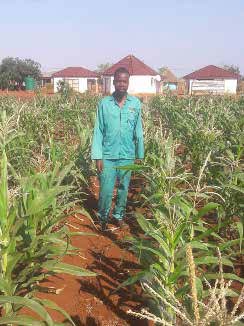
Godfrey Mathebula (32) hails from Plange Village in Malamulele, Limpopo. He has won several awards from the Department of Agriculture, Forestry and Fisheries (DAFF).
He said the awards were the fruits of his hard work and love for agriculture. “I love farming. I don’t see myself doing anything else but being a farmer,” said Mathebula.
He plans to use his passion to create employment, especially in his village. He has one permanent employee and 14 temporary staff but in peak season he employs 24 people.
Mathebula said he decided to start the farm after noticing the high unemployment rate in his home village.
“I saw a lot of people in my community who were unemployed, especially those who live with disabilities. I wanted to do something to create jobs and I saw a chance in farming.” Mathebula understands living with a disability because his left arm was amputated after a train accident.
Mathebula started farming on a small plot in 2006. In 2016, he moved to a 3.5 hectare farm named Macelakuomile. His most recent award was in the Youth Living with Disability category of the national leg of the Youth in Agriculture, Forestry and Fisheries Awards (YAFF) hosted by DAFF.
In the past the DAFF has given recognition to Mathebula not only for his achievements as a young farmer but also for his contribution to agriculture as a person living with a disability.
Mathebula produces various vegetables including dry beans, tomatoes and green peppers. The most recent harvest produced 50 Kilograms of dry beans, 12 crates of tomatoes, 100 crates of green peppers and 1 000 bundles of Chinese spinach.
“I sell my produce to Pick n Pay, Shoprite and to businesses in Pretoria and Johannesburg,” said Mathebula.
He said he is grateful for the support he has received from government. In the past, the Limpopo Department of Agriculture and Rural Development had provided seeds, baked beans and manure as well as equipment for applying pesticides.
In addition to the vegetables he also raises goats and pigs which he sells to the local community.
Mathebula has big dreams for his farm, hoping to grow it to such an extent that he can export produce to Europe and Asia.
Umalusi gives 2019 matric exams the greenlight
Umalusi gives 2019 matric exams the greenlight angenithaThe Council for Quality Assurance in General and Further Education and Training, Umalusi, has given assessment bodies the greenlight to administer the 2019 matric exams.
The 2019 matric exams will begin on 23 October and wrap up on 28 November.
Briefing the media recently, the Council said it conducted a thorough assessment of the readiness of the basic education system to manage and conduct the 2019 national examinations.
“To this end, the Council is generally satisfied that all assessment bodies are ready to undertake this massive task,” said CEO Mafu Rakometsi.
As a Quality Council, Umalusi monitors and verifies the work of public assessment bodies such as the Department of Basic Education and the Department of Higher Education and Training – and private assessment bodies such as the Independent Examinations Board, the South African Comprehensive Assessment Institute and Benchmark Assessment Agency.
In terms of the National Senior Certificate, there are 751 668 candidates - this is a decrease of more than 40 000 candidates compared to 2018.
Approximately 629 197 full-time learners and 122 471 part-time candidates will sit the 2019 exams.
These exams are taking place at more than 6 900 centres across the provinces.
Shortages of markers
Umalusi highlighted with great concern evidence of a shortage of markers in key subjects, with high enrolments at the time of the audit.
These were found in the Northern Cape (agricultural sciences afrikaans markers), Western Cape (history paper 2), and Eastern Cape (English first additional language, physical sciences, life sciences and Afrikaans markers).
While contingency plans have been put in place to address these shortages in the interim period, Umalusi called on all affected provincial departments to urgently address them.
Furthermore, the quality assurance body noted high levels of vacancies in critical areas within examinations directorates in Limpopo, Northern Cape, Mpumalanga, Free State, KwaZulu-Natal, North West and the Eastern Cape.
“Nevertheless, provincial education departments have put measures in place, such as allowing available staff to work overtime to mitigate the shortage of staff,” said Rakometsi.
What would have people said?
What would have people said? vuyelwan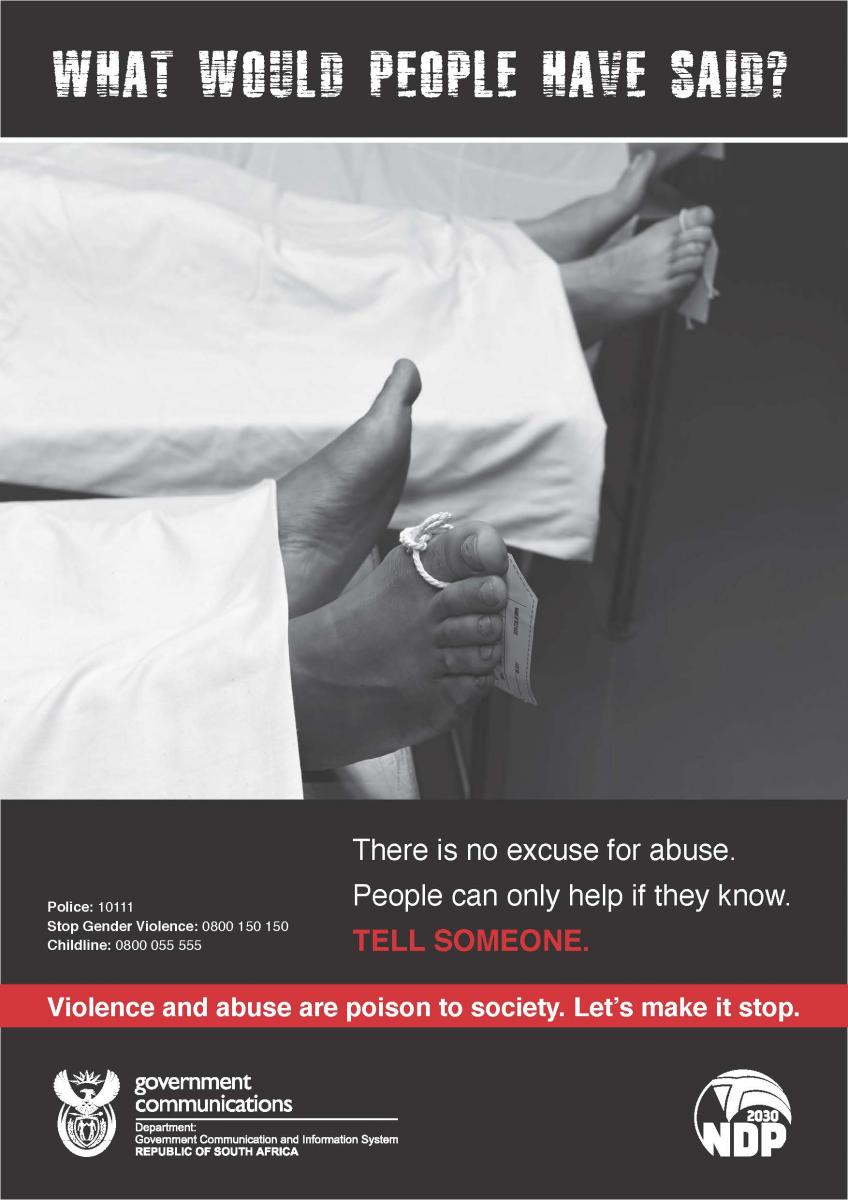
What you should know about human trafficking
What you should know about human trafficking angenithaGender-based violence
Modern-day slavery, also k nown as human trafficking, is one of the world’s fastest-growing crimes.
nown as human trafficking, is one of the world’s fastest-growing crimes.
The trafficking of people is done in various ways, according to anti-trafficking organisation Abolitionists 21 (A21).
It says that:
- About 43.4 percent of trafficking victims are captured through job scams.
- Family members traffic 11.2 percent of the victims.
- 9.6 percent involves Loverboy trafficking (when people are groomed into trusting their trafficker).
- Friends trick and sell 8.6 percent of trafficked people.
- 5.6 percent of trafficked people are abducted.
- Immigration is used in 2.6 percent of cases.
- 1.2 percent of trafficked people fall for false saviours.
According to the 2018/19 crime statistics, trafficking was thought to be behind at least 11 cases of kidnapping in South Africa.
Traffickers tend to target unemployed people who are looking for opportunities to improve their life conditions and that of their children.
The Department of Justice and Constitutional Development (DOJ&CD) said trafficked children are often sexually abused, used for forced labour or for their body parts.
Help prevent human trafficking
According to the department, there are several ways that communities can protect themselves, including:
- Contacting the Department of Labour in your area to validate job offers, particularly those outside your province or the country. Any suspicious conduct by prospective employers or their agents must be reported to the police.
- Being wary of people – both men and women – who say they have job opportunities that promise a lot of money in a short space of time.
- Teaching your children to be careful of adults who try to befriend them, whether in person, through a cell phone or Internet chatrooms.
- Reporting places where you suspect trafficked people are kept (for example, brothels, farms, factories and shebeens) to the local authorities and the media.
The DOJ&CD urged communities to be on the lookout for victims of human trafficking so that help can be sought for them. It said victims are often unable to speak the local language, appear to be trapped in their job or the place they stay, may have bruises and other signs of physical abuse and do not have identification documents.
Suspected human trafficking can be reported to the police at 08600 10 111 or the National Human Trafficking Hotline by calling 0800 222 777.
Young author found solace in writing
Young author found solace in writing vuyelwanAn enthusiastic young reader turned writer finds comfort and life lessons in the world of books.
Writing her first book at the age of 11 has helped Olwami Shangase (12) heal the pain of discovering that her biological father had rejected her before she was born.
Shangase said her book titled Rejected Treasure aims to teach everyone, especially children, about the power of forgiving and loving. 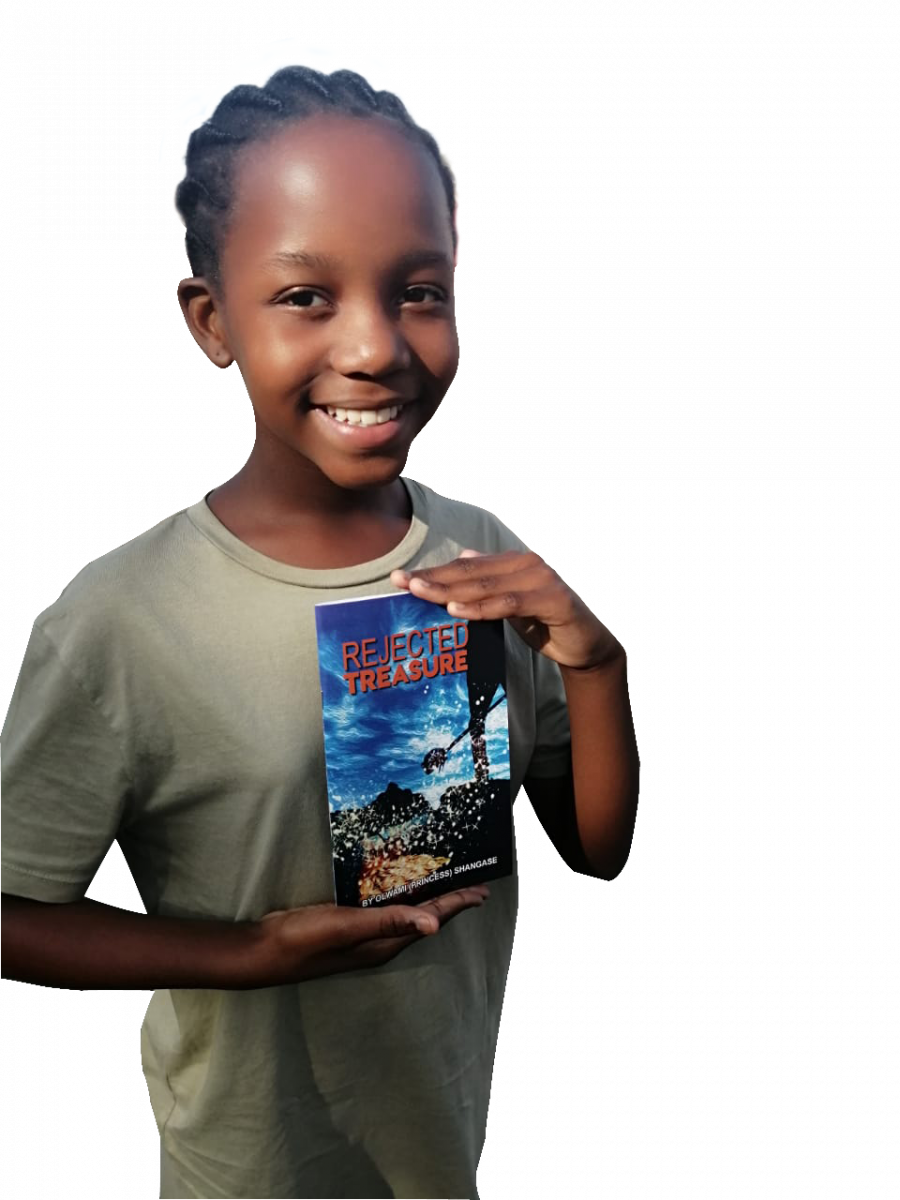
The young author from Illovo in KwaZulu-Natal said; “I am hoping that this book will encourage other young children to love and to forgive. I forgave my biological father even though he never came to me and asked for forgiveness.
“I also want other parents to know that it is okay to raise children that are not biologically theirs, and children must also know that it is okay to be raised by step-parents,” she added.
“My book is carrying a message of love and forgiveness. Shangase explained.
“Forgiveness is very important to me and I use the book to tell other people about the power it has,” she said.
It was on her seventh birthday that Shangase found out that her father had rejected her.
“I was very heartbroken that my biological father rejected me, but at the same time I was grateful and appreciative that my stepfather filled in the gap and never made me feel like I am not his biological daughter. It was very humbling to know what he has done just for me,” Shangase said.
An avid reader who finishes about four books a week, Shangase thinks books carry powerful messages. Some books are educational, some spiritual, while others take you on an imaginary tour of the world, she said.
“I love reading books. Reading teaches me a lot about what other people go through all around the world.”
She said single parents should not give up nor be discouraged.
“As children, we need parents to guide us and give advice on certain things about life and to also support us emotionally.”
She said all parents must remember that children are a gift from God.
The book is available at Adams Book Shop in Durban. If you would like a copy of the book call Sindi Msimang on 072 771 5985
